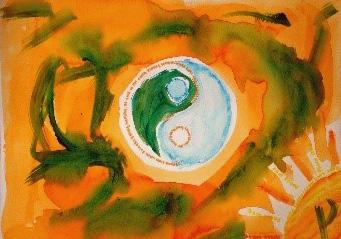
2 minute read
On Spirituality Talia Schoenberg
On Spirituality Talia Schoenberg, RZJHS 2020
I want to tell you two short stories this morning.
Story #1: My first two years of high school, I never took the opportunity to establish my own authentic way of prayer. I rarely even read the words of the siddur. I would observe the traditional service and whisper to friends every so often because I was bored. As someone who grew up praying every morning at school, I wasn’t interested in finding a way of prayer that was unique to me. Moreover, when I did pray, I didn’t pray with meaning. Rather, I said the words only because I knew participating was the right thing to do.
Story #2: My second two years of high school, I opened my mind to the idea of finding meaning within the words of the siddur. I began to pray according to my needs. Essentially, I created my own authentic form of prayer. I started to enjoy walking into the Beit Knesset and praying to both comfort and learn more about myself. I realized the significance of my prayers.
In his essay “Jewish Religiosity,” Martin Buber teaches us to recognize the difference between religion and religiosity, or what we call: spirituality. Religion is passive; it contains strict laws and teachings that are passed down from generation to generation and one must follow them as they are.
On the other hand, spirituality “means activity– the elemental entering-into-relation with the absolute.” For Buber, our spirituality depends on the force of our actions. It is our job not to let any kind of external force guide or weaken our actions. Rather, we should use the freedom we are given to creatively form a relationship with God.
Since it is our duty to establish a connection with God, Buber emphasizes the importance of acting on your own instead of following tradition. Spirituality is all about DOING; we need to be fully mindful and committed when it comes to creating an authentic approach
Kyle Fingerhut, RZJHS 2020
to connecting with the Divine.
Something else goes with this. Buber explains how important it is not to let our spirituality turn back into “religion.” Let me give you an example from the Bible. Israel created a sacrificial cult because they were in need of a living, vibrant communion with God.
But, the sacrificial cult became too elaborate, governed by rule after rule. Instead of connecting the people to God, their only focus was on the sacrifice itself. The prophets knew this. They spoke to it. Amos, Micah, Isaiah, and Jeremiah criticized Israel’s approach; they said: you can’t connect with God just by doing an action because you think it will please God.
Rather, God wants to hear your heart and the meaning behind your actions. For us, this might mean being intimate with our prayers and rituals. We shouldn’t say the words of the siddur just because it is the right thing to do, or put on tallit and tefillin because it’s a school rule.








